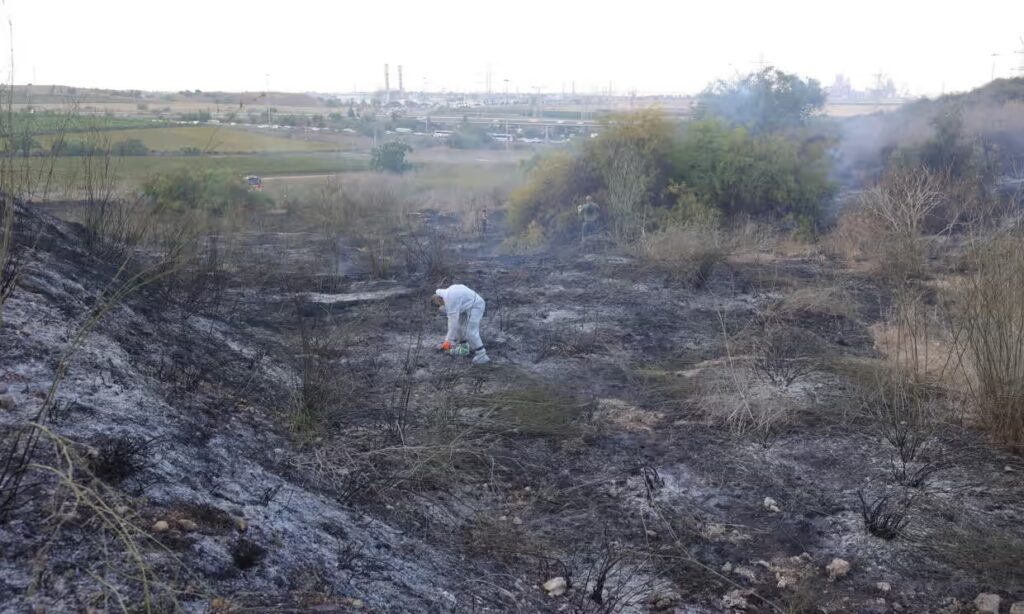Prime Minister Netanyahu vowed severe retaliation against the Houthis, recalled a previous Israeli airstrike on the Hodeidah port in Yemen

JERUSALEM: In a dramatic escalation of regional tensions, Israeli Prime Minister Benjamin Netanyahu has issued a stern warning to the Iran-aligned Houthi rebels from Yemen following a significant missile attack on central Israel. This incident marks a notable intensification in the ongoing conflict involving Israeli forces and the Houthi group, highlighting the expanding reach and advanced capabilities of the Houthis’ missile technology.
On Sunday morning, a missile launched by the Houthis struck near Tel Aviv, marking the first time a Houthi missile has targeted central Israel. The missile, described by Houthi military spokesman Yahya Sarea as a hypersonic ballistic missile, traveled 2,040 kilometers in about 11.5 minutes, showcasing the Houthis’ advanced missile technology. The attack triggered air raid sirens across Tel Aviv and surrounding areas at approximately 6:35 a.m. local time (0335 GMT), sending residents scrambling for shelter amidst the loud explosions.
While initial reports suggested the missile landed in an open area, Israeli military officials later confirmed that the missile likely fragmented in mid-air, with debris landing in fields and near a railway station. Thankfully, no injuries were reported from the incident. In response, Prime Minister Netanyahu has vowed severe retaliation against the Houthis. He recalled a previous Israeli airstrike on the Hodeidah port in Yemen, which was launched in retaliation for a Houthi drone attack on Tel Aviv in July. That drone strike had resulted in one fatality and four injuries, prompting Israeli airstrikes on Houthi military targets that led to six deaths and 80 injuries.
Netanyahu’s comments underscore Israel’s determination to respond decisively to any future threats. The Houthis, supported by Iran, have previously targeted Israeli territory with missiles and drones, citing solidarity with Palestinians amid the Gaza conflict. The recent missile strike, however, represents a significant escalation, being the first instance of a Houthi missile penetrating deep into Israeli territory. Houthi spokesman Sarea described the missile strike as a response to Israeli aggression and hinted at the possibility of further attacks as the October 7 operation approaches, when Israel started aggression.
The expanded missile range and increased strike capability of the Houthis indicate a growing capacity and willingness to challenge Israeli security. This missile strike highlights the complex regional dynamics, particularly the involvement of Iran in supporting the Houthi rebels. The incident reflects the intricate geopolitical landscape of the Middle East, where conflicts frequently intersect and escalate across national boundaries.
#Netanyahu, #HouthiMissile, #Israel, #Yemen, #MiddleEastConflict, #MissileStrike, #TelAviv, #HodeidahPort, #Iran, #RegionalTensions, #HypersonicMissile, #IsraeliRetaliation, #GeopoliticalDynamics, #October7Operation, #GazaConflict



